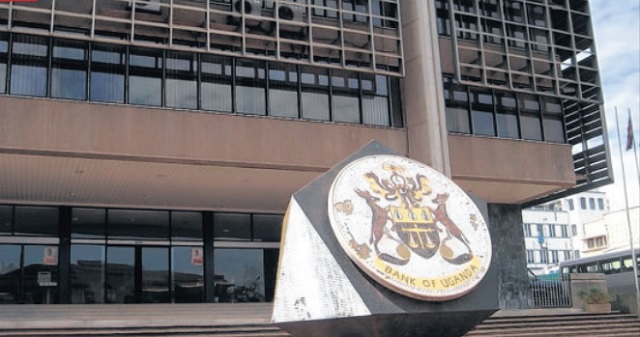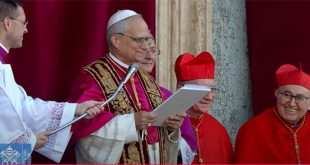
In the debate on how to reform BoU, calls for the two top officials to leave BoU have gained more traction as more controversies have rocked the central bank. Proponents of this view claim that the reputation of the two men has taken a hit and any sensible reform of the bank can only happen after they have left.
Observers also cite a power struggle between the two men, which they say has divided the bank into two camps rendering it vulnerable and incapable of performing its duties normally.
However, for others, the President needs to keep the two men on the job and work with them to solve the current challenges facing the bank.
Those behind this line of thinking say firing the two pillars of the central bank, who have a combined work experience of over 50 years between them of managing Uganda’s financial sector, will distablise the bank and send a dangerous signal about Uganda’s economy at the time it appears to be struggling.
Firing either of them is also not a light move given their political constituencies.
Kasekende is a catholic and a Muganda with close links to the powerful Mengo establishment. If Museveni were to fire him, he would need a replacement with the same base. And Museveni is very sensitive to these things. When he fired former Vice President Gilbert Bukenya, he replaced him with another Muganda catholic, Edward Kiwanuka Sekandi.
As for Mutebile, President Museveni also tends to be loyal to his loyal servants and would not want to fire Mutebile who has served him at the highest levels since he took power and is credited for laying a foundation for Uganda’s economy while his assistant at State House, Secretary to the Treasury at the Ministry of Finance and Governor BoU since 2001.
As a result of all this, others say the president just needs to wait them out. At 69 and 60 respectively, Mutebile and Kasekende are already in retirement age.
Most importantly, Kasekende’s contract expires in 2020 and Mutebile’s, in 2021. The President can keep them on the job and wait for their contracts to expire and not renew them. This, many hope, will also buy officials investing BoU enough time to conclude their investigation and make recommendations that the new managers of BoU can start from.
Plunging new managers into the BoU mess would make it next to impossible for them to salvage the bank’s reputation, some insiders claim. Indeed, some of the problems Mutebile and Kasekende are facing happened before Mutebile joined the bank.
Three of the eight banks closed by BoU that parliament is investigating were closed and sold before Mutebile joined BoU.
These also happen to be the most controversial sales. They are; Teefe Bank (1993), International Credit Bank Ltd (1998), Greenland Bank (1999) and Co-operative Bank (1999).
Mutebile joined BoU in 2001 and as such, banks closed under his watch are; National Bank of Commerce (2012), Global Trust Bank (2014) and Crane Bank (2016).
Blaming BoU’s weak board
Away from this, some experts say, Mutebile and Kasekende are not the only problem at BoU. They point out that current investigations by the IGG and the latest investigation in parliament over the closed banks are likely to be expose junior officers of the BoU as the real culprits.
Part of the problem BoU has had is that its board of directors is not the strongest, insiders say. Failure for the board to play its oversight role partly explains why the central bank finds itself in this mess.
Mutebile and Kasekende sit on that board as chairman and deputy chairman, and Bank Secretary, Susan Kanyemibwa, is the Board Secretary. Dr. William Kalema, James Kahooza, Judy Obitre-Gama, Keith Muhakanizi, and Josephine Okui Ossiya, are the other board members.
“This board is incapable of providing oversight to the bank,” said an official who is deeply knowledgeable about the inner workings of BoU, “They have also been sucked into the in-fighting.”
Indeed, some board members do not see eye-to-eye with Mutebile ever since he made the Feb.8 reshuffle.
The official added that while in the past Mutebile was a strong central banker, when his health deteriorated, it weakened him and rendered him incapable of keeping tabs on critical goings-on at BoU.
“Over the years,” the official noted, “BoU has done very well on monetary policy. The challenge has been managing the financial sector.”
Indeed, the biggest challenges BoU is currently facing have to do with failure to manage the financial sector.
And this problem is also a historical one. The 1999 judicial commission of inquiry into the closure of commercial banks blamed the collapse of the International Credit Bank (ICB), Greenland Bank Ltd (GBL) and Co-operative Bank on their owners and poor supervision by the central bank.
“The primary responsibility for the failures of ICB, GBL and Co-operative Bank lay with the owners and managers,” the commission comprised of Justices James Ogoola (chairman), David Porter, and Japheth Katto noted, “All of them (three failed banks) were afflicted with the one-man management syndrome of autocratic corporate governance – exemplified by Thomas Katto (ICB), Sulaiman Kiggundu (GBL) and USAID (Coop Bank).”
 The Independent Uganda: You get the Truth we Pay the Price
The Independent Uganda: You get the Truth we Pay the Price



 Who is Pope Leo XIV?
Who is Pope Leo XIV?